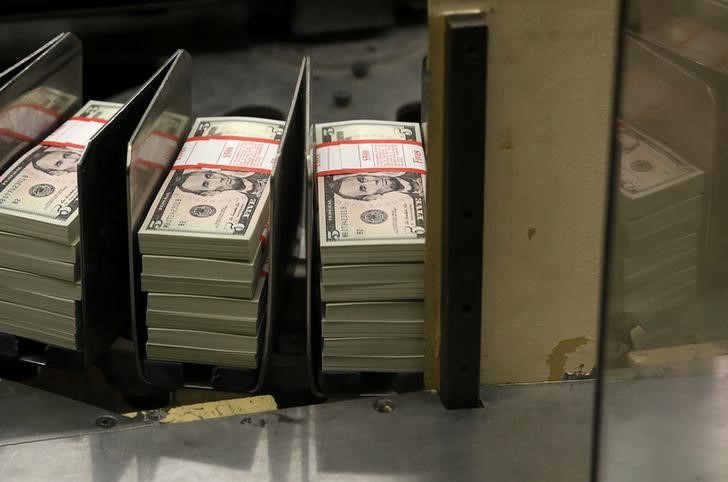Investing.com - The dollar slid lower on Tuesday as traders remained on the sidelines while they awaited the outcome of a tight U.S. presidential race between Hillary Clinton and Donald Trump.
The U.S. dollar index, which measures the greenback’s strength against a trade-weighted basket of six major currencies, was down 0.17% at 97.61.
Markets rallied on Monday as Clinton got a late boost in the polls after the FBI confirmed that it won’t bring charges over emails related to her personal email server.
A victory for Clinton is expected to be less disruptive for financial markets than a win for Trump and would strengthen the case for the Federal Reserve to raise interest rates in December.
Investors are currently pricing in a 76.3% chance of a rate hike at the Fed's December meeting; according to federal funds futures tracked Investing.com's Fed Rate Monitor Tool.
Expectations of higher rates tend to boost the dollar, as higher borrowing costs make the currency more attractive to yield seeking investors.
But analysts have warned that the U.S. central bank could hold off on hiking rates if the election outcome sparks market volatility.
The dollar was slightly lower against the euro, with EUR/USD at 1.1057 and was steady against the safe haven yen, with USD/JPY at 104.49.
Japan’s Finance Minister Taro Aso said on Tuesday that Tokyo will need to respond to moves in the currency markets if the U.S. election results cause a sudden spike in the yen.
The Mexican peso was steady against the dollar, with USD/MXN at 18.60 after tumbling more than 2% on Monday.
The Mexican currency has been sensitive to developments in the election amid fears that a win for Trump could damage the country’s economy.
The pound pushed higher, with GBP/USD rising 0.29% to 1.2431.
Meanwhile, the Australian dollar was lower, with AUD/USD losing 0.21% to trade at 0.7721.
Sentiment on the Aussie weakened after data overnight showing that China’s imports and exports fell more than expected in October, as both domestic and global demand weakened.
